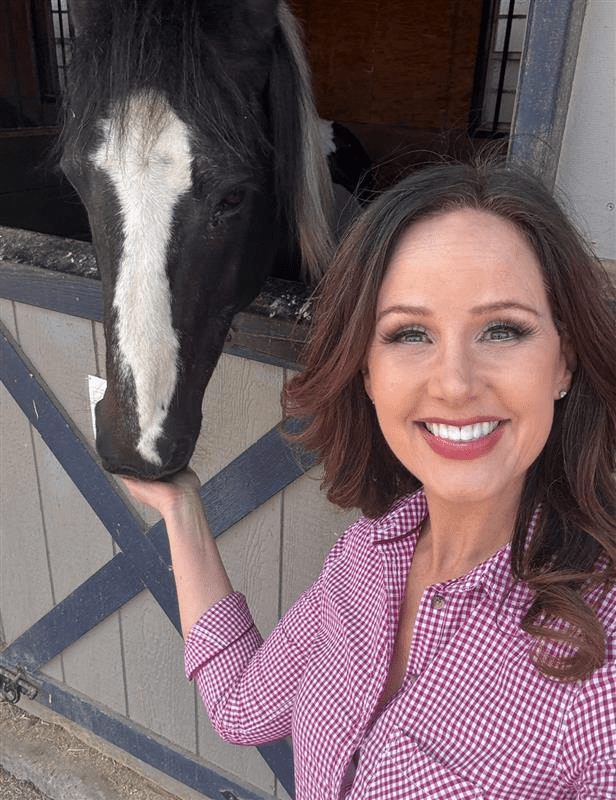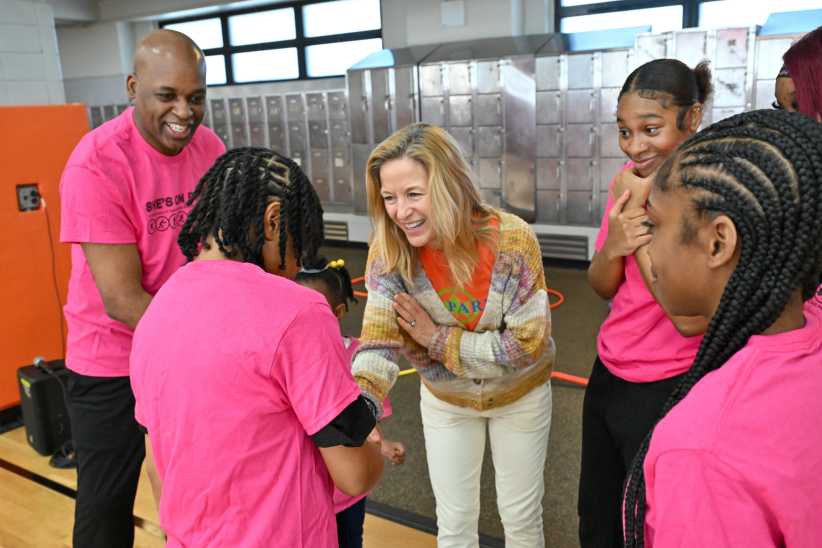To Help My Toddler Give Up Her Paci…
By Jill Valente
In November my family and I celebrated our daughter Addison’s second birthday. It
was a great party, but looming over the celebration was the reality that I had to get rid of
Addy’s pacifier when she turned two on the recommendation of our pediatrician.
A few weeks earlier I began mentioning that “paci” was going to have to go “bye bye”
soon. We planned to throw it down the garbage chute, and we discussed it daily. Then,
during one of our conversations, Addy said, “Garbage chute, now!” So we grabbed the
pacifier and down the chute it went.
The day went on as usual until naptime, when she asked for her paci, and things took a
turn for the worse. She started sobbing, muttering, “We can’t buy any more pacis!” as
tears ran down her face. After an hour of hyperventilating, I popped an extra pacifier
in her mouth and she was out like a light. When she woke up, she said, “Paci come
back!”—to which I agreed.
With my original plan foiled, I met with Soho Parenting’s Jean Kunhardt, M.A., who said
something that surprised me. At two years old, Jean said, Addy wasn’t ready to have the
pacifier taken away; she maintained that there is so much going on in the life of a two-
year-old that changing a part of her routine can be very detrimental.
Addy’s pacifier is a treasured item; I would never throw out her teddy bear or blanket,
and I realized that a paci should be treated the same way. Here are a few of Jean’s other
helpful tips that I’m sure will help me when the time is right.
- Do try and take away the pacifier before their first birthday, otherwise wait until your
child is 3 or 4. - Don’t throw it away; putting it in the trash or garbage shoot can be
traumatizing. - Do give it away; explain that the new baby across the street needs her
pacifier. - Don’t destroy it—poke holes in it or make it taste bad.
- Do eulogize the pacifier;
make a keepsake book or a necklace out of the pacifier handles.
Photo: Jill Valente and her daughter, Addison
Photo by Andrew Schwartz
 To Get My House Organized Once And For All
To Get My House Organized Once And For All
By Jean Halloran Monaco
New Year’s resolutions often seem too lofty and ambitious to me; “I
want to learn Chinese,” “I want to learn to cook in Italy
this year.” Let’s face it, if I can
remember to quiz my first grader on her English spelling every Thursday and get out to Long Island
for a homemade dinner with my mother-in law, things are going pretty well. But I like the idea of
setting a realistic goal, and this year I’d like to get my home more organized.
As Maeve Richmond, Professional Organizer and Founder of Get
Your House in Order, stated, “For families who live in New York City, organizing can be a pressure cooker
scenario, because we all are challenged to live in smaller spaces.”
And I have to agree as wonderful as it is to have ballet classes,
museums and Broadway usually a short walk or cab ride away—it often leaves me
wondering or at times yelling, “Where are the ballet shoes?”,
“Where is the museum art project?,” “Where are the theater tickets?”
When I found out Richmond would be coming to my house I was a
bit apprehensive. Was she going to “scold” me like the Nanny
“scolds” the families she is “helping” on television? However, I was relieved to find Maeve warm and approachable. After touring my apartment, she
outlined her five organizational concepts. “I’m not a rules person—I want these concepts
to enable you to make your own decisions,” she said.
This was a different approach then I had seen before; it wasn’t the militant “Keep,
Donate, Give Away” mantra. Instead, she focused on giving items a specific place to live
and giving me time to think about what they mean to me. Also, how often I use something and storage
placement go hand in hand (just b/c the zester is a kitchen tool doesn’t mean it needs to take up counter space with my spatulas and wooden spoons.)
I also like that she does not overwhelm a client with a full
or half day, she prefers a two hour time period. So we weren’t going to tackle a room, but
instead we concentrated on a place that especially unnerved me—my
bedroom desk.
Our organization session was very focused. When I was about to get up and put crayons
in the bin in the kids’ room, Maeve stopped me, saying that leaving the room would be
a distraction. How right she is; I do that all the time when I
“pretend” to organize and suddenly, I am checking the calendar,
using the phone, or getting on the computer, and the project at hand escapes me.
After grouping similar items (change, pens, crafts, my husbands’ stuff) we
came across $140 worth of unexpired gift certificates. We also found a 2007 calendar in
a dusty Filofax and hard disks I used a decade ago. The funniest discovery was a book
about organization buried under a pile.
Organizing my desk may not seem like a monumental change, but I gained a clean,
functional and aesthetically pleasing place to work, in addition to Maeve’s great tips that
will help me tackle the rest of my house.
Photo: Jean Halloran Monaco and organizer Maeve Richmond
Photo by Andrew Schwartz
To Make Time For Date Night With My Hubby

By Heather Chaet
Last time
we saw a movie just the two of us? December 2007 (we caught post-Apocalyptic “I am Legend”). Last dinner-date?
September 2009 (two anniversaries ago). Last time we painted pottery? Ummm,
never. As you may have guessed, Jason and I don’t follow the Post-Kid Marriage
Golden Rule. We do not have date nights. I hear your collective disapproving
gasp. Blame it on crazy work schedules, accuse us of being old, tired, lame.
It’s all true. So I jumped at the chance to get our tushees in gear and spend
some quality time together. This New Year’s Resolution assignment was perfect…and
nothing gets a writer motivated like a looming deadline. To wit, we had more dates in two weeks than
we had in all of 2008.
Date #1:
Jason and I went to a museum, one without a gigantic blue whale (no offense,
AMNH – we’re members and we love you). One thing we bonded over when we started
dating was our love of modern art (okay, that sounds really lofty, but it was
more like, “You like those prints at Art.com? So do I!”). We trekked to MoMA and
the Abstract Expressionist New York exhibit. I re-discovered my love of Franz
Kline, he re-confirmed his love of Mark Rothko, and we saw a performance piece
where a hole was made in a grand piano and a pianist plays upside down and
backwards while standing in that hole. It was a fantastic morning (and we’re
taking Tessa next weekend—she’s a Jackson Pollock fan).
Date #2: Our
mission on this date was not to plan. We went out to dinner and – cue the
dramatic pause – we didn’t make reservations or bring crayons. We popped into a
few new places in the ‘hood, but the waits were horrendous. We kept on hunting, and I have to say, I was
getting pretty discouraged (the hunger pains weren’t helping). On a whim, we
stopped by a favorite of ours, Ocean Grill. They didn’t have a table available
but they suggested we head to the bar and see if any tables open up in their
first-come, first-serve area. After only a five-minute wait, we nabbed a cozy
table where we’ve never eaten before (and where we never could with Tessa in
tow). One word: yummilicious.
Date #3: My
husband is not a crafty man. Witty? Yes. Creative? Yes. Crafty? Not so much.
The music was pumping as we entered Make Meaning at about 9 p.m. (it’s open ‘til 11 Thursday through
Saturday and you can BYOB until they get their liquor license). We talked about
making each other a mug. Then we saw the cats. Tessa loves cats. So, together,
we painted Sassy. Sassy the cat. I took the artistic lead, but our Associate
Creativity Expert was uber-encouraging to Jason, bringing him special detail
brushes, admiring his work as we went along. Once we started polka-dotting
Sassy, Jason said, “You know, this is really fun.” A totally unexpected great
date in a family place.
Looking
back, of all of the dates, the pottery-painting excursion was definitely the
most fun. Sure, we have to be crafty with Tessa at times, but usually it’s
helping her draw a castle or involves pink Play-Doh and plastic dinos. At Make
Meaning, we were really collaborating, working together on a task…something we
rarely do, expect when going over the family budget, which, believe me, is
never classified as “fun.”
Having
these dates and writing about them made me ponder our future dates. I think
we’ll skip the dinner dates and plan more adventurous, active outings. One of
my first stories for New York Family was on just that—outside-of-the-box date
nights. I think I may put my words to the test, practice what I preached, so to
speak. So, next up for us: a scavenger hunt. Check over at the motherhood list in in the next few weeks to see how it turns out.
Photo: Heather Chaet and her husband, Jason.
 To Make A Dinner My Whole Family Will Enjoy
To Make A Dinner My Whole Family Will Enjoy
By Michelle Levine
What’s for dinner? It’s the dreaded question, but it’s not even my husband and children
who ask it. Why should they, when I prepare separate meals for each of them on many
nights? Wanting to stop the short-order-cook syndrome, I resolved to plan weekday
meals ahead of time and insist that whatever I make is what’s for dinner.
So I sought the advice of Jenna Helwig, the chef, culinary instructor and visionary behind
Rosaberry (rosaberry.com), who came to my kitchen and set me on a path to simplifying
my family’s dinners. After describing a typical evening meal in my home, we discussed
food preferences and dietary restrictions. A few days before our meeting, Jenna suggested
three recipes and gave me a shopping list.
I was pleasantly surprised to see that I had most ingredients on hand, which is one of the
best tips Jenna has—keep a well-stocked pantry and freezer. Having a recipe repertoire
and knowing what items you use frequently allows you to shop efficiently and be
prepared.
Another useful idea: find at least one half-hour during the week to focus on upcoming
meals. Plan for weeks or days at a time—the goal is to broaden everyone’s culinary
horizons while incorporating foods everyone will eat into each dinner.
One strategy I was particularly interested in implementing was the make-ahead meal.
Jenna’s Crowd-Pleasing Chili was the perfect solution. She assured me that the chili
froze well and wouldn’t be too intimidating for me to prepare. Jenna’s flavorful recipe
immediately put my doubts to rest, and her encouragement inspired me to make another
batch the day after her visit. A perfect wintertime meal, the chili is finally something all
four of us can agree on for dinner.
Photo: Michelle Levine and chef Jenna Helwig
Photo by Nancy James






















